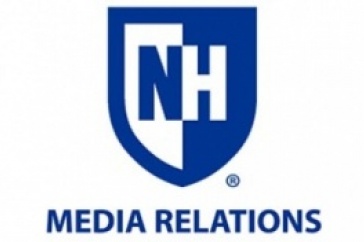The University of New Hampshire inspires innovation and transforms lives in our state, nation and world. More than 16,000 students from all 50 states and 71 countries engage with an award-winning faculty in top-ranked programs in business, engineering, law, health and human services, liberal arts and the sciences across more than 200 programs of study. A Carnegie Classification R1 institution, UNH partners with NASA, NOAA, NSF and NIH, and received $260 million in competitive external funding in FY21 to further explore and define the frontiers of land, sea and space.
New UNH Analysis Finds Innovation in Meeting Food-Related COVID-19 Needs

Reporters and editors: Jess Carson will discuss the key findings of her analysis in a webinar Tuesday, May 19, 2020, at 10:45 a.m. EST. You are invited to join via zoom.
DURHAM, N.H.—Government, nonprofit, retail and volunteer emergency food system responses to the COVID-19 pandemic have not only been innovative but include new dissemination models as well as modifications to and expansions of existing programs, according to a new summary by the Carsey School of Public Policy at the University of New Hampshire.
“Unlike in prior economic downturns, meeting food needs is not limited to supplementing food purchasing power or ensuring sufficient charitable donations,” said Jess Carson, research assistant professor with the Carsey School’s Vulnerable Families Research Program. “In the pandemic context, it has also been key to alter food acquisition channels to comply with social distancing regulations and address access for those at elevated risk of infection.”
Carson noted that emergency food system responses have focused on enhancing accessibility, particularly for the elderly, and reducing the need for in-person contact. In particular, drive-through pickup is an especially prevalent modification as well higher-volume distributions, which reduces frequency of contact.
“As the pandemic continues to affect families’ economic well-being, food access is likely to remain an important challenge,” she said. “In addition to adjustments to existing programs, it will be important for states to utilize allowed flexibility in SNAP administration and to consider higher benefit levels, as well as increase federal allocations for other nutrition programs.”
The Carsey School of Public Policy conducts research, leadership development, and engaged scholarship relevant to public policy. They address pressing challenges, striving for innovative, responsive, and equitable solutions at all levels of government and in the for-profit and nonprofit sectors.
Latest News
-
January 12, 2026
-
December 4, 2025
-
November 26, 2025
-
November 6, 2025
-
November 5, 2025













































